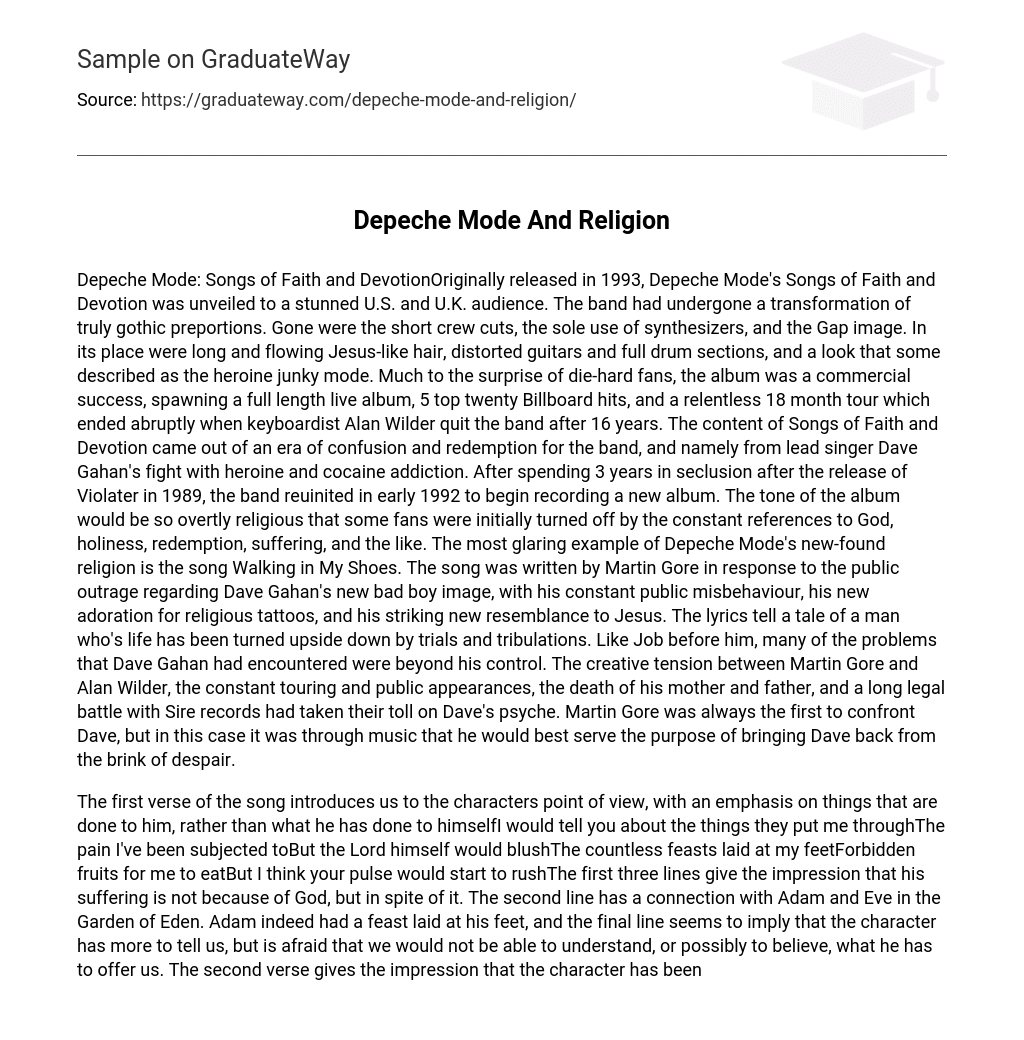Depeche Mode’s Songs of Faith and Devotion, originally launched in 1993, shocked audiences in the U.S. and U.K. The band underwent a significant gothic transformation, ditching their previous style and adopting long, flowing hair, distorted guitars, full drum sections, and a look reminiscent of a heroin addict. Despite surprising their dedicated fans, the album was a commercial success, leading to a live album, five top twenty Billboard hits, and an extensive 18-month tour that abruptly ended when keyboardist Alan Wilder quit after 16 years. The album’s content reflected a time of confusion and redemption for the band, particularly lead singer Dave Gahan’s battle with heroin and cocaine addiction. After three years in seclusion following the release of Violater in 1989, the band reunited in early 1992 to record a new album. Some fans were initially put off by the overt religious themes present in the album, including constant references to God, holiness, redemption, and suffering. The song “Walking in My Shoes” serves as a clear example of Depeche Mode’s newfound religious perspective.Martin Gore wrote the song in response to the public’s outrage over Dave Gahan’s new rebellious image, including his constant misbehavior, religious tattoos, and resemblance to Jesus. The lyrics tell the story of a man whose life has been completely disrupted by trials and difficulties. Similar to Job, many of the problems that Dave Gahan faced were beyond his control. The tension between Martin Gore and Alan Wilder, constant touring and public appearances, the loss of his parents, and a lengthy legal battle with Sire records had greatly affected Dave’s mental state. Martin Gore was always the first to confront Dave, but it was through music that he found the best way to help Dave overcome his despair.
The opening verse of the song introduces the perspective of the character, highlighting the things done to him instead of his own actions. The character expresses a desire to share the hardships he has endured, even though they would shock even God. There is a mention of lavish feasts and forbidden fruits, reminiscent of Adam and Eve. The character hints at having more to reveal, but worries about our ability to comprehend or believe it. The second verse portrays the character as a scapegoat, facing disapproval from morality and decency. However, the character insists on the purity of their intentions and believes their case is obvious.
The initial lines emphasize the significance of morality and decency in character identification, highlighting that these traits are crucial in recognizing one as both a good person and someone who is undeservingly enduring suffering. Conversely, the concluding lines draw a parallel between intentions and the relationship between Job and God, as portrayed in the Bible. Job’s suffering served as a means for God to assert a point to Satan, thus implying that Job’s intentions could be perceived as virtuous.
Despite never openly expressing their religious beliefs, the character in the text implies a spiritual significance to their experiences through their choice of language. The album consistently incorporates religious references, resulting in a somber and melancholic atmosphere but also offering room for diverse interpretations. Some perceive the album as a portrayal of despair and sorrow, while others regard it as one of the most inspiring musical creations ever made. Just like with religious texts such as the Bible, the reader’s mindset is vital in comprehending its message.





